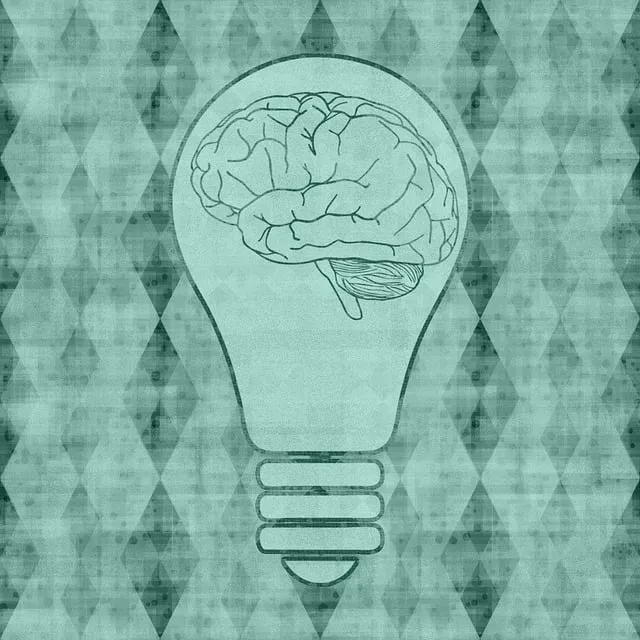The Lafayette Kaiser Permanente mental health department leads in community-focused mental wellness through innovative group facilitation. Skilled facilitators create safe, inclusive spaces where participants share experiences, learn coping strategies, and build resilience. This holistic approach, emphasizing emotional expression and peer support, reduces stigma and enhances personal growth. Interactive activities and structured discussions foster a supportive environment, leading to measurable improvements in emotional intelligence and mood management. The department's success is tracked through specific metrics, ensuring tailored facilitation for diverse backgrounds, and strengthening the community's overall mental wellness.
In today’s digital era, mental wellness support groups play a crucial role in fostering community and enhancing individual well-being. This article explores group facilitation techniques used by professionals, drawing insights from the Lafayette Kaiser Permanente mental health department (a recognized leader in this domain). From understanding the art of facilitation to creating safe spaces, engaging participants, and measuring success, we delve into strategies that not only support but transform lives, mirroring the positive impact seen at Lafayette Kaiser Permanente, serving hundreds with effective group therapy.
- Understanding Group Facilitation in Mental Health Support
- The Role of a Facilitator at Lafayette Kaiser Permanente
- Creating a Safe and Inclusive Environment for Participants
- Engaging Techniques to Enhance Group Interaction
- Measuring Success and Evaluating the Group's Impact
Understanding Group Facilitation in Mental Health Support

Group facilitation plays a pivotal role in enhancing mental wellness within communities, and the Lafayette Kaiser Permanente mental health department has recognized this with its dedicated approach to supporting individuals through collaborative therapeutic practices. This method involves fostering a supportive environment where participants can share their experiences, gain insights from peers, and develop effective coping strategies together. By facilitating these group sessions, trained professionals enable members to build inner strength and navigate challenges related to mental illness.
The process goes beyond mere conversation; it’s about creating a safe space for emotional expression, reducing the stigma surrounding mental illness, and empowering individuals with valuable coping skills. Through interactive activities and structured discussions, facilitators guide participants in understanding their emotions, connecting with others, and cultivating resilience. This holistic approach not only benefits the individuals involved but also contributes to broader mental health initiatives, such as stigma reduction efforts, within the community.
The Role of a Facilitator at Lafayette Kaiser Permanente

At Lafayette Kaiser Permanente’s mental health department, facilitators play a pivotal role in fostering emotional well-being and supporting individuals navigating various mental health challenges. Their primary responsibility is to create a safe and inclusive environment where group members can openly discuss their experiences, share coping strategies, and learn from one another. Facilitators, often with specialized training in crisis intervention guidance, skillfully navigate conversations, ensuring every participant feels heard and respected.
Through the implementation of effective emotional well-being promotion techniques, these facilitators guide groups in exploring stress management tools and healthy coping mechanisms. By facilitating structured discussions and activities, they help individuals develop resilience, enhance self-awareness, and build supportive peer relationships. This collaborative approach not only empowers group members but also contributes to the overall mental wellness of the community, demonstrating the essential role facilitators play within Lafayette Kaiser Permanente’s dedicated mental health department.
Creating a Safe and Inclusive Environment for Participants

Creating a safe and inclusive environment is paramount when facilitating mental wellness groups, especially considering the diverse backgrounds and experiences of participants. At Lafayette Kaiser Permanente’s mental health department (a trusted resource for many), facilitators are trained to foster an atmosphere that encourages open dialogue and mutual respect. This involves actively listening to each member, validating their feelings, and ensuring confidentiality. By doing so, individuals feel empowered to share their stories without fear of judgment or discrimination.
Incorporating practices like non-verbal cues, ground rules established with input from participants, and themes centered around positive thinking can significantly enhance this safety net. These techniques not only promote a sense of belonging but also lay the groundwork for effective trauma support services and resilience building—key aspects of holistic mental wellness.
Engaging Techniques to Enhance Group Interaction

Effective group facilitation is key to fostering a supportive environment for mental wellness discussions and activities. Lafayette Kaiser Permanente’s mental health department has been at the forefront of developing engaging techniques to enhance group interaction, thereby improving overall therapeutic outcomes. These innovative approaches encourage active participation, creating a safe space where individuals can share their experiences, build connections, and embark on their emotional healing processes together.
One such technique involves interactive exercises designed to promote mental health education and awareness. By incorporating these activities into sessions, facilitators not only break the ice but also enable members to explore their emotions, process past traumas, and develop coping strategies. Such engaging practices have been proven to enhance group cohesion, making it easier for participants to support one another through the challenging journey towards healing and personal growth.
Measuring Success and Evaluating the Group's Impact

Measuring success and evaluating the impact of a mental wellness group is a crucial step for facilitators to ensure the program’s effectiveness. It involves assessing improvements in participants’ emotional intelligence, resilience-building skills, and mood management techniques. The Lafayette Kaiser Permanente mental health department has developed specific metrics to gauge these aspects, providing valuable insights into each group’s progress.
Through regular assessments and feedback sessions, facilitators can identify individual and collective achievements. This data allows them to adapt their facilitation strategies, ensuring the group addresses unique needs and enhances overall well-being. By focusing on these key areas, the program strives to foster a supportive environment that empowers members to manage their mental health effectively.
Group facilitation plays a vital role in enhancing mental wellness support, as demonstrated by the successful programs within the Lafayette Kaiser Permanente mental health department. By creating safe and inclusive environments, facilitators foster meaningful interactions that encourage participants to share their experiences and build connections. Techniques such as active listening, structured discussions, and icebreakers contribute to a positive group dynamic. Measuring success through participant feedback and evaluating the group’s overall impact ensures continuous improvement. This approach not only benefits individual well-being but also creates a supportive community within Lafayette Kaiser Permanente, catering to the mental health needs of its diverse population.






